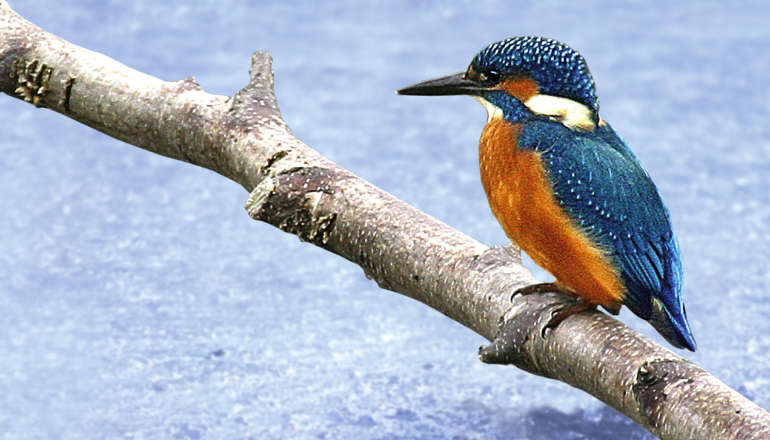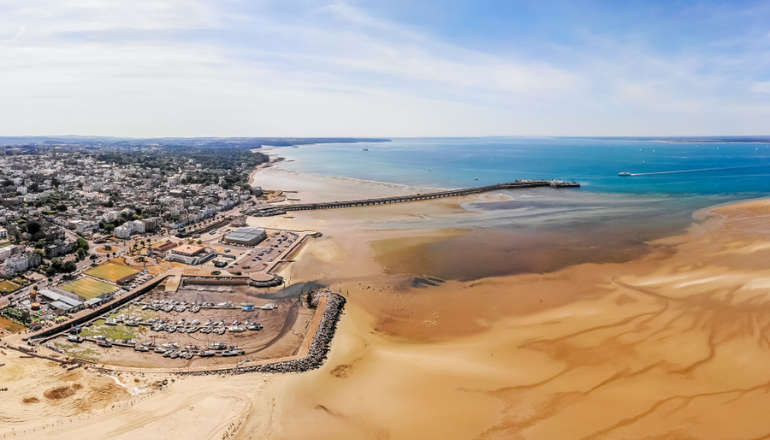
Hampshire & Isle of Wight Wildlife Trust has called on the newly elected government, and the region’s MPs, to step up and take the decisive action needed to protect and restore nature.
The need for robust environmental policies has never been more critical.
The UK is one of the most nature-depleted countries in the world, and there are just six years left to meet our national, legal target to halt nature's decline by 2030.
Debbie Tann MBE, Chief Executive of Hampshire & Isle of Wight Wildlife Trust, has urged the new Government, and our local MPs of all political parties, to now play a full part in helping to deliver nature’s recovery.
Speaking after the results of last night’s General Election, Debbie said:
“The Environment Act has set clear targets but without immediate and effective action, these goals will remain out of reach.
"We urge the new Government to demonstrate real leadership and commit to implementing critical policies we need.
“The natural world is in crisis, and it is our collective responsibility to act now to secure a sustainable future for all."
The Hampshire and the Isle of Wight region saw a number of political changes as a result of the election, with 7 out of 20 seats changing hands.
“We are at a pivotal moment for nature conservation in the UK.” Debbie continued.
“The new Government has a clear mandate and a unique opportunity to lead the way in reversing nature's decline.
“We call on all our local MPs – of all parties – to champion the policies and solutions needed to deliver a healthier, more resilient natural environment – and crucially – help us capitalise on the considerable opportunities for more sustainable green jobs in our area.
The Trust has identified five key policy priorities that must be addressed to halt and reverse species decline:
- Reforming our planning system: Development needs to be both nature-friendly and sustainable. Our planning system must be reformed to protect critical habitats and natural resources, and ensure that new developments contribute positively to the recovery of the natural environment.
- Supporting the transition to Nature-Friendly Farming: Agriculture is one of the biggest drivers of biodiversity loss and climate change, and in turn these issues are a huge threat to food security. Policies should properly fund the transition to sustainable and regenerative methods of food production that support biodiversity restoration, soil health, and climate resilience.
- Tackling water pollution: Clean water is essential for both wildlife and people. Stricter regulations and better management of pollutants, including agricultural runoff and sewage, are vital if we are to protect our rivers and seas. Our local chalk streams are a world-renowned habitat, but their health is at great risk. We need local champions backing more robust protections to help save our chalk streams.
- Supporting greener communities: Urban and rural greenspaces provide the essential habitats and stepping stones that our wildlife needs to survive and thrive, whilst also supporting people’s health and wellbeing and helping deal with the impacts of climate change. We need to empower communities to connect with and look after the nature on their doorstep.
- Prioritising Nature-Based Solutions to climate change: Natural solutions such as reforestation, wetland creation and seagrass restoration can make a meaningful contribution to combating and building resilience to climate change while also boosting biodiversity. These ecosystems can act as buffers against extreme weather such as flooding or droughts, protecting people, houses, crops, water supplies and vital infrastructure.
More details are available here.

 Monkton Arts Announces Ryde Gypsy Jazz Festival 2025
Monkton Arts Announces Ryde Gypsy Jazz Festival 2025
 Acclaimed Singer-Songwriter Polly Paulusma Announces Intimate Isle Of Wight Live Dates
Acclaimed Singer-Songwriter Polly Paulusma Announces Intimate Isle Of Wight Live Dates
 Students Promote Community Cohesion With New Art Installation At Newport Bus Station
Students Promote Community Cohesion With New Art Installation At Newport Bus Station
 Ryde Town Council Inviting Entries For Honours Award
Ryde Town Council Inviting Entries For Honours Award
 Island Singer Amy Joliffe Releases New Single
Island Singer Amy Joliffe Releases New Single
Comments
Add a comment